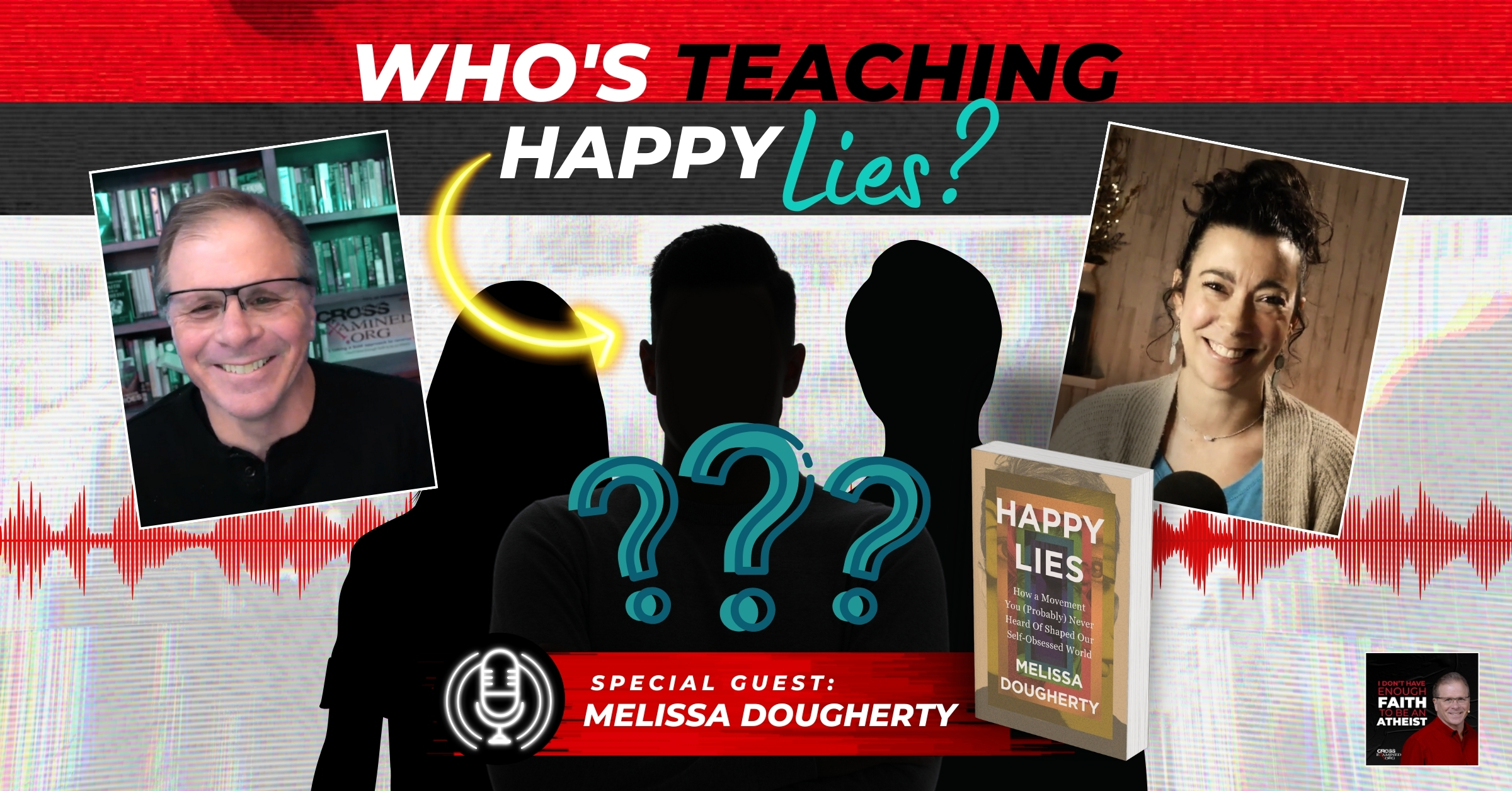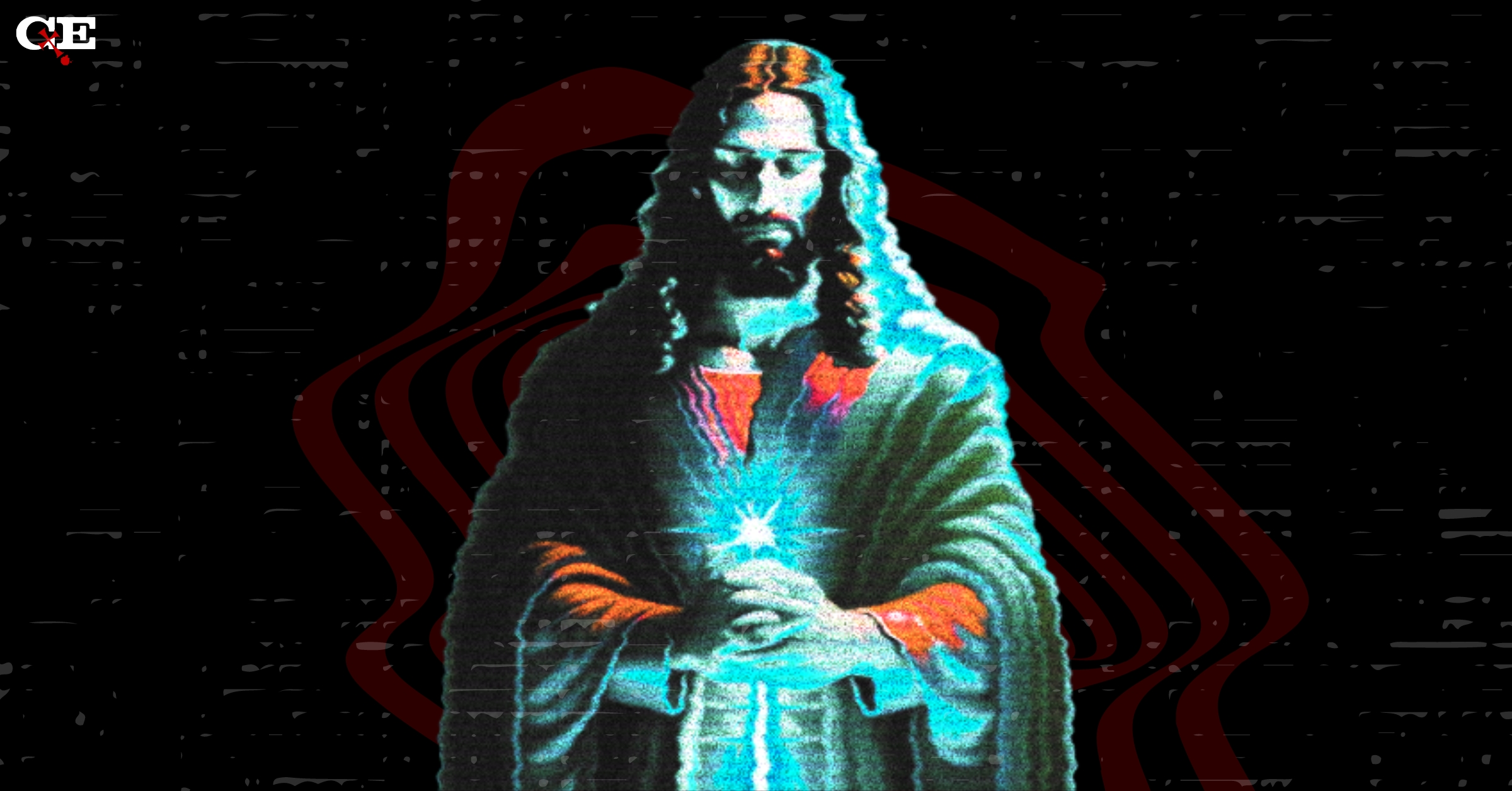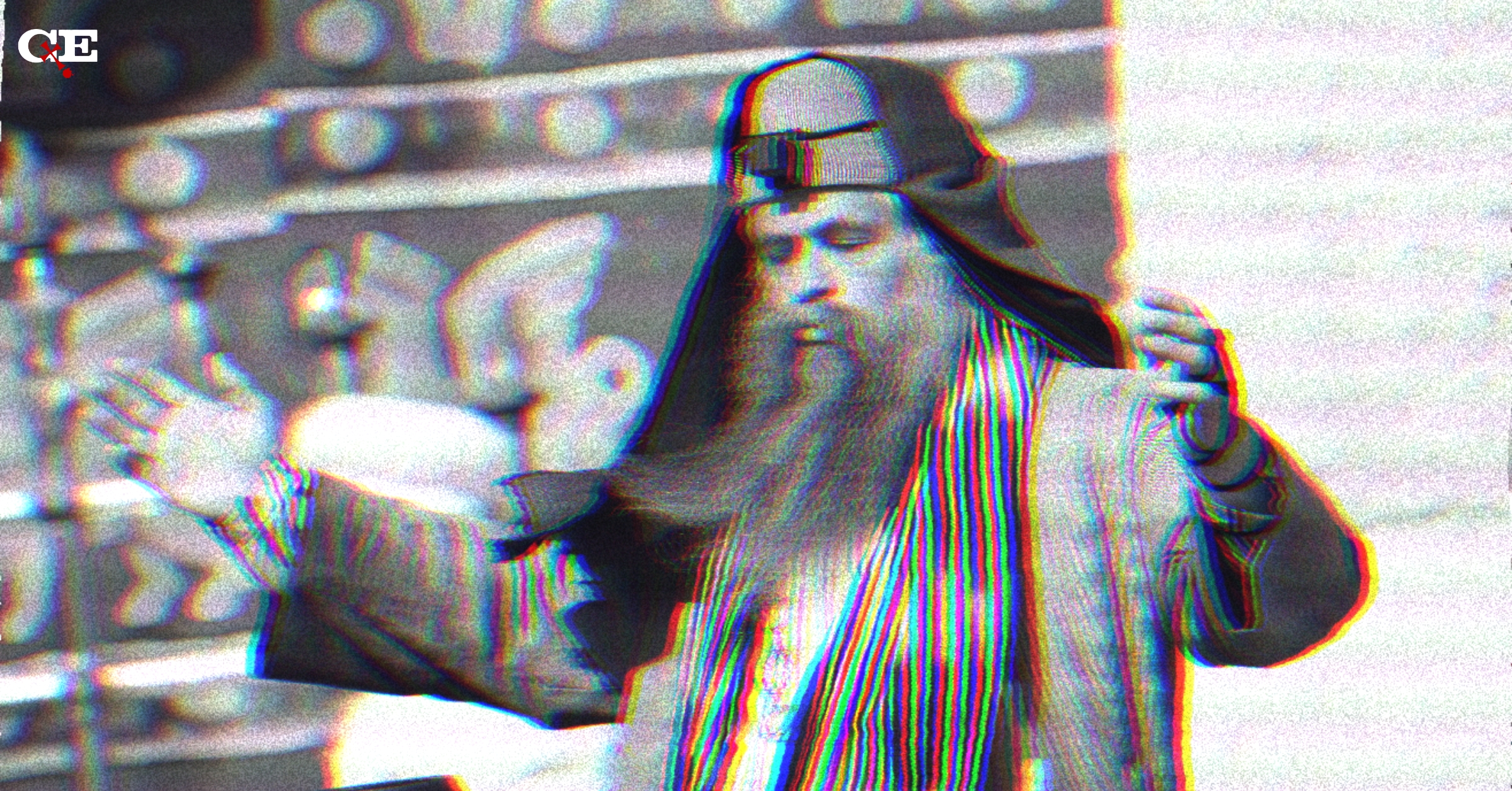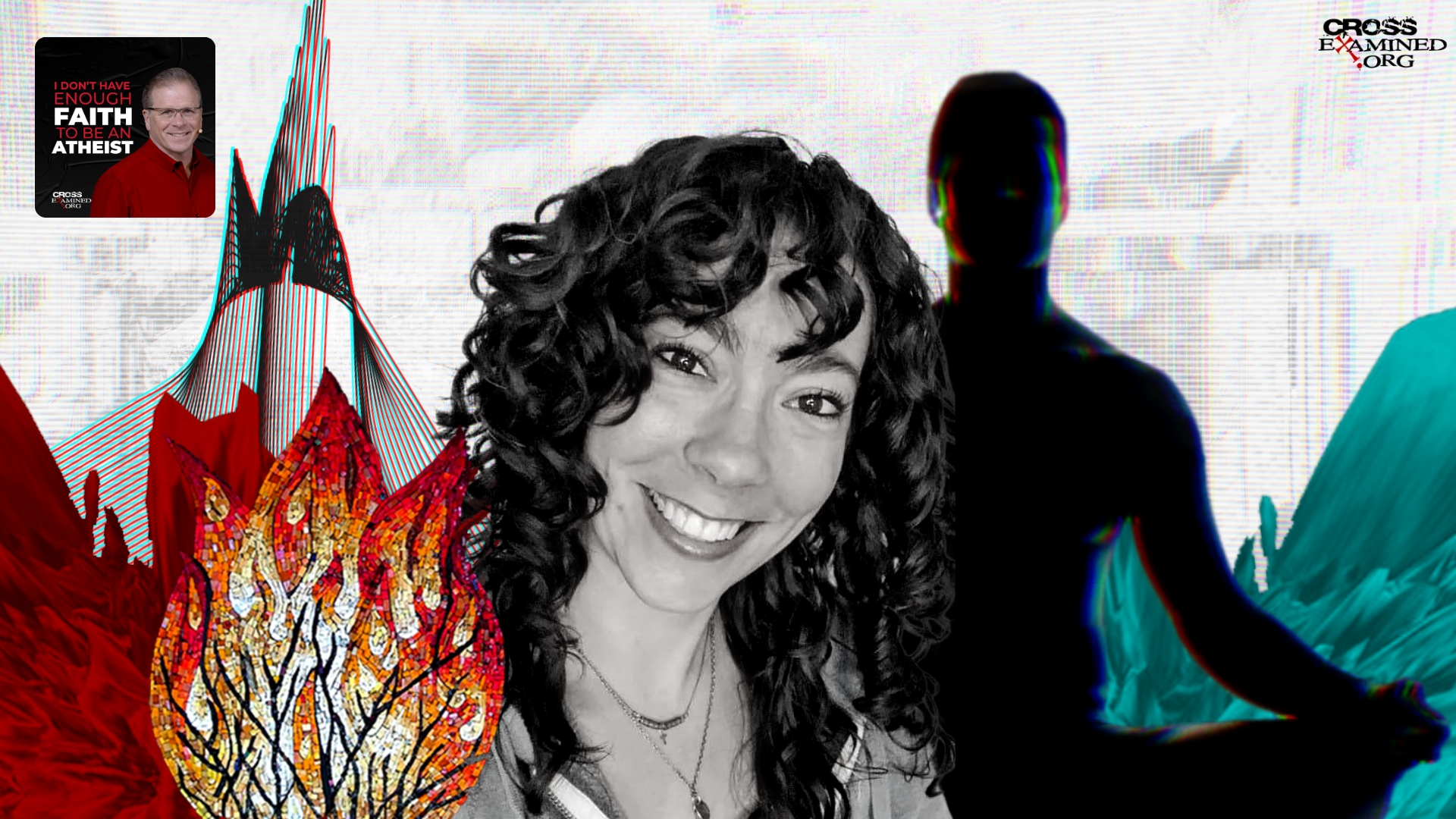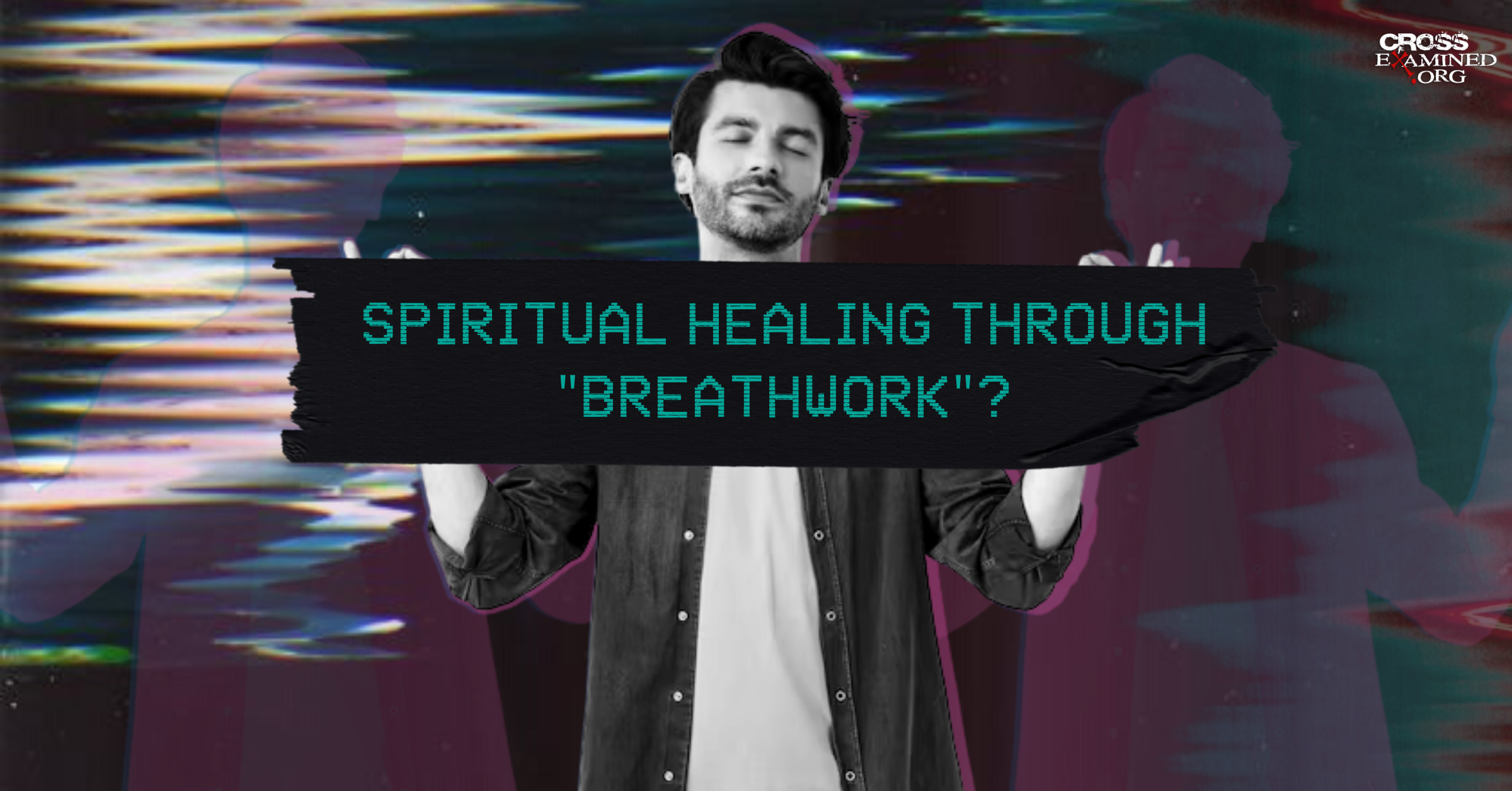When people hear the word “New Age,” they might think of the hippie generation of the ’60s. When people hear “New Thought,” however, most people have no idea what it means.
I believe New Thought has much more influence than New Age. Don’t be fooled by the names. Neither one of them are new. They’re as old as the garden. Many people use the terms interchangeably because the core belief is exactly the same: You are good, and You are God. “New Age” can be an umbrella term used for both New Thought and New Age, but they are actually different. And I believe it’s important to distinguish these terms. There are differences that I believe Christians specifically need to know about. Because New Thought can fool Christians before the New Age will.
First, let’s start with New Thought. If you remember anything about New Thought, remember this one thing: metaphysical Christianity. Literally, take any Christian doctrine and redefine it to put an allegorical metaphysical definition with it, and you have New Thought. It’s spiritual but not religious. This is particularly why I believe New Thought is much more sinister: it’s made to look Christian. Here are some brief terms to know:
Christ
This doesn’t mean the same thing within Christianity. In New Thought, “Christ” and “Jesus” are two different things. Jesus was a man, and Christ is the inner divinity that all mankind can awaken to. Jesus was the Way-shower to how this can be done. He obtained the “Christ Consciousness,” the awakening to his True Self, his inner divinity, and you can too. In this way, you are the I AM just as much as Jesus was.
God
An “It” not a “He.” This is a force or a spiritual source that pours out abundance and prosperity to those who know how to wield their power. New Thought isn’t pantheistic but pan-en-theistic, which is basically an attempt to fuse pantheism with theism. (See, “Panentheism”)
Sin
The only sin is your ignorance of your self-divinity and remaining in your False Self, or your Ego.
Atonement and Salvation
This means “At-One-Ment,” a mixing of the words to mean that you’re awakening to a higher level of consciousness. Salvation is found in your finding your True Self.
Evil/Hell/Satan/Heaven
None of these are literal, but states of mind or metaphorical. Anything that’s considered evil, such as someone flying into the Twin Towers, is because they are in their False Self. The reason for pain, suffering, and evil is because of humanity’s unawareness of their inner divinity, and therefore asleep to their True Self. In this way, they have created their own personal Hell or Heaven. New Thought also believes in an ambiguous Universalism. There is no judgment, only love.
Bible
The Bible is filled with metaphysical esoteric knowledge that those in the “spiritual know” can interpret. People that wrote the Bible only understood it in the time and place that they lived, but we understand more now because we have grown spiritually. This is why they can look at a Scripture and think, “what does this verse mean to me,” because their interpretation is subjective to their lived experience. Their view of the Bible is a higher spiritual view that depicts real Christianity.
Faith and Prosperity
New Thought might be best known through the popular concept of positive thinking that we see in the self-help section at your local bookstore. Faith is a power to make things happen. We can wield this power through our minds. Because New Thought teaches that God only allows good things to happen, if we have enough faith, we can proclaim health and wealth, and it must manifest itself in our lives. The Law of Attraction is probably the most popular New Thought belief that most would recognize. Your words have power and can create. God is a creative force. Since you’re a manifestation of God, you’re able to create with your words as well.
This list is by no means exhaustive. But these concepts are unique to New Thought dressed up as Christianity. New Age parts ways in its more occultic associations. New Thought might say that it frowns upon occultic practices, but that isn’t the case. They would say that truth can be found anywhere, including the occult. Both have gnostic leanings and a relativistic view of truth, but here are three specific differences between the New Age and New Thought:
Three Big Differences Between New Thought and New Age
- New Thought claims to be Christian in origin and uses Christian terms, but accepting of all beliefs. The New Age we know today was heavily influenced by theosophy, which does not claim to be Christian.
- New Age is more associated with Numerology, Astrology, Tarot, Crystal Energy, Yoga, Auras, Starseeds, Psychedelics, Psychics, Astral Projection, and Alienology.
- New Age might be more pantheistic in their worldview than the panentheistic view of New Thought.
Even though there are differences, the two almost always seem to overlap in beliefs on some level. For example, I have never met someone in the New Age who didn’t believe in Christ Consciousness or the law of attraction. I believe this is why the terms are used interchangeably, where most people would associate themselves with being caught up in the New Age when really they were more into New Thought (Myself included).
Both are alluring, and both are deceiving. Both elevate man and demote God. New Thought masquerades as true Christianity, and because of this, I’ve seen numerous Christians adopt New Thought beliefs and not know it. In my experience, Christians tend to be able to spot the New Age much better than they can New Thought. New Thought has been a shadow of a deception in the Church, and I want to shine a light on it so Christians can be equipped to know what they’re dealing with.
A constant companion to avoid deception: The Bible. Stay in it. Read it. Study it. You will be able to discern the metaphysical definitions that New Thought uses immediately if you know the real thing.
Recommended Resources Related to this Topic
How Can Jesus Be the Only Way? (mp4 Download) by Frank Turek
Person of Interest: Why Jesus Still Matters in a World that Rejects the Bible by J. Warner Wallace (Paperback), (Investigator’s Guide).
Another Gospel? by Alisa Childers (book)
Counter Culture Christian: Is the Bible True? by Frank Turek (Mp3), (Mp4), and (DVD)
Defending Absolutes in a Relativistic World (Mp3) by Frank Turek
Is Morality Absolute or Relative? (Mp3), (Mp4), and (DVD) by Frank Turek
____________________________________________________________________________________________________________________________________________________
Melissa Dougherty is a Christian Apologist best known for her YouTube channel as an ex-new ager. She has two associate’s degrees, one in Early Childhood Multicultural Education, and the other in Liberal Arts. She also has a bachelor’s degree in Religious Studies at Southern Evangelical Seminary.
